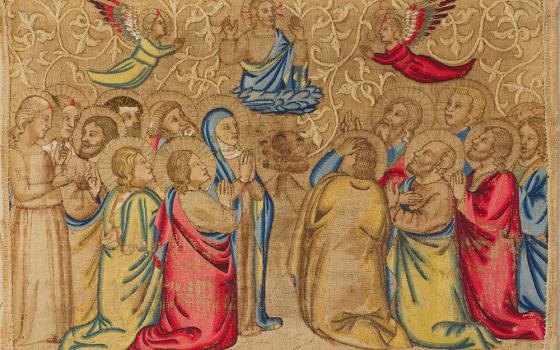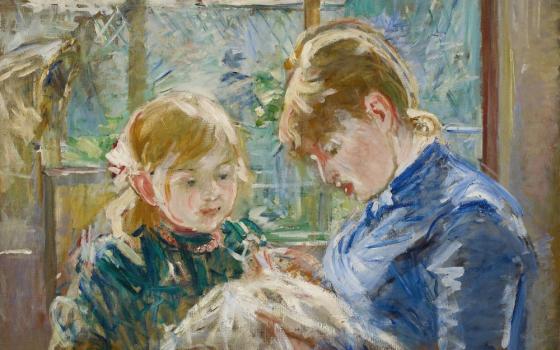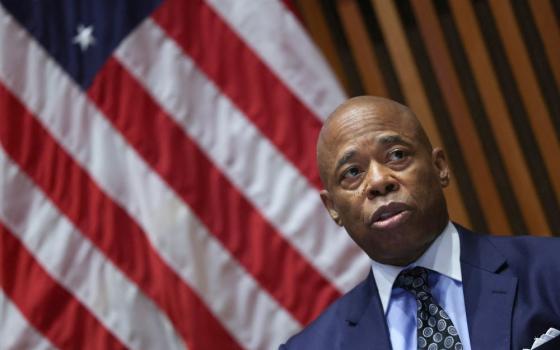The gay man walking toward me in Parliament Square held a rainbow flag in one hand and a placard in the other. The meaning of the flag was clear, the placard less so. It carried a quotation from England's most celebrated 20th-century poet: "Imagine there's no countries."
As his questioning eyes met mine, I almost smiled my agreement. Who could argue with that?
But this was no time for smiles. It was a week after Britain's historic vote on June 23 to leave the European Union. We were surrounded by 40,000 pro-EU demonstrators ("Remainers"), angrily protesting the result of the "Brexit" referendum. This was the gravest political crisis since World War II and a world without countries seemed about as likely as politics without hypocrisy.
Anyway, it was a sunny day and the sense of history in the making made it an easy decision to join the throng as a secret unbeliever. I was just visiting my old homeland for my daughter's college graduation. I didn't belong in this crowd with its forest of placards, each complaining about the result handed down by the voters. Some were quite witty, most were tedious and others just plain offensive. All were signs of petulant denial.
Even I knew that the Brexiteers had notched up more votes than had ever been cast for any reason in British history, and yet these Remainers' condescending explanation seemed to be that all those millions of voters were gullible idiots at best, Nazis at worst -- their opinion should be disregarded, as dinner guests might ignore the gauche interruptions of a child allowed up past bedtime.
Even the gay man's John Lennon line was beginning to look no better than the others -- a flat assertion of moral superiority. This was what fed-up middle-class Brexit voters had felt driven to rebel against: a remote, priggish elite that could neither conceive nor tolerate any alternative to their fashionable views on what everybody should think, speak and feel.
A duality of disdain has awoken on both sides the stirrings of an ages-old leviathan: that same pitiless English righteousness that burned heretics, exiled the Pilgrim fathers, destroyed Dresden and -- almost accidentally -- subjugated one-third of the world's population. Through history, those on the receiving end have learned to their cost that it's a demon better left unroused.
Too late now. The old devil is awake and prowling "England's mountains green," to quote another English poet. And with customary genius, he has found a way into both sides of the argument. Perhaps he's a friendly Brexit devil, who frees from her European prison an enchained Britannia, yearning for the return of her sovereignty, democracy and independent place in world affairs. Or is this the Pharisee Remainers' nasty nationalist devil: a racist xenophobe who stokes fascist prejudices?
As the crowd carries me along, I wonder who can judge right and wrong in this binary world of "in" or "out." The Lennon fan has moved away (I don't blame him), and to see Satan's handiwork in his little line of poetry does now seem harsh. Remainers and Brexiteers, sheep and goats -- choose your favorite Jacob and Esau -- none of them makes a satisfactory devil for a comfortably neutral American, or angel come to that.
Unable to decide, I leave the Remainers to lament the unfairness of the voters' verdict. My wandering feet bring me to the Sanctuary, that small cobbled forecourt that welcomes visitors to Westminster Abbey. More of William Blake's words come to me: "And was the Holy Lamb of God, in England's pleasant pastures seen?"
As with Lennon, I knew Blake's words had an edge of irony that suited my deteriorating mood. Behind me, the crowd roared its approval of something I couldn't hear. To my ears, the noise had gained a note of menace and my gloom only deepened. What chance has any brand of idealism in this endlessly divided world?
Some days later, the answer to this question was quietly delivered by an unexpected source.
Fittingly enough, it came from my newly graduated daughter who, unlike me, will have to live with Brexit and its consequences, good or bad, for the rest of her life. As is her nature, she took no fashionably impassioned stand on the issue, but carefully considered the arguments for and against and reached her own conclusion, no less firmly held for being so softly spoken. Of course, I didn't agree with her -- but the clever counterargument I had prepared gave way to a deeper realization. Such are a daughter's powers.
As in every storm, there's a still, small voice of calm if you can just allow yourself to hear it, and I heard it then. I remembered the Gospel story of the temptation of Christ -- in return for homage, Satan offered Jesus all the nations of the Earth but was rebuked in reply that worship is for God alone. Clarity at last: Even the EU isn't eternal, and nor is Brexit.
Back home in America, we might find in that a lesson for our side of the ocean too -- a gentle reminder about priorities, perhaps, for those who would rule over us.
So be it, Lord; thy throne shall
never
Like earth's proud empires
pass away;
Thy kingdom stands and grows
forever,
Till all thy creatures own thy
sway
Or, if that won't fit on your placard: "Imagine there's no countries."
[Patrick Jephson served eight years as equerry and the first and only private secretary (chief of staff) to the Princess of Wales. Appointed lieutenant of the Royal Victorian Order for personal service to the sovereign, Jephson became an American citizen in 2014.]






